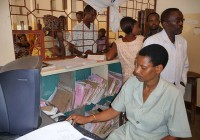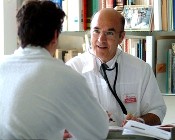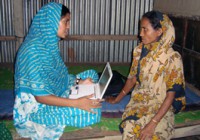Verbal autopsy: To be counted is to become visible

This is a guest blog by Peter Byass, Director of the WHO Collaborating Centre for Verbal Autopsy at Umeå University, Sweden. Peter has a regular global health blog and is on Twitter, @UCGHR. “Nothing is certain except death and taxes” – Benjamin Franklin, 1789 Unfortunately, Franklin was correct in excluding cause of death from the… Read more »





